Posted on 9/27/2022
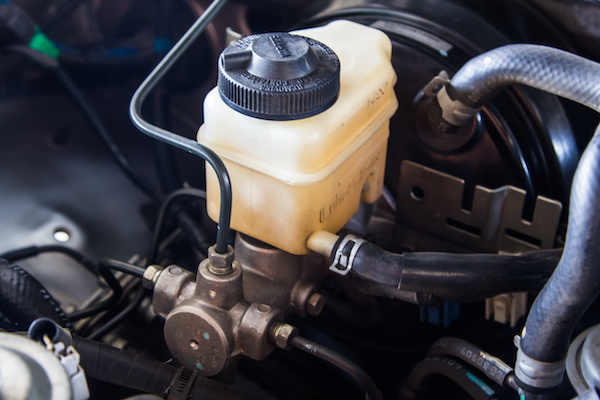
One overlooked part of the brake system is the brake fluid. Most people remember their brake pads, brake calipers, and brake rotors, but none of these components would have a part to play without the help of brake fluid. This solution creates the pressure needed to slow and stop your vehicle. Hydraulic braking systems need brake fluid to power their brakes. When you apply pressure to the brake pedal, the fluid is pushed through the system. This fluid, also known as DOT fluid, is stored under the hood. One major weakness of brake fluid is that it can be corrupted by moisture in the air. This is why manufacturers often make the fluid reservoir clear to allow you to read its levels without opening the cap. Signs That Indicate Low Brake Fluid Loose or spongy brake pedals - The feeling of your brake pedal can give you a ton of insight into the health of your braking system. It should never feel too firm or too soft. If the pedal feels too loose or easily gets pushed t ... read more
Posted on 8/30/2022
.jpeg)
Keeping a stash of useful items and helpful tools can help you in desperate times. While you may think you’re the safest driver in the world, some incidents are unavoidable and out of your hands. Out of the millions of accidents that happen every year in the US, it is likely that you are going to be in one or more in your lifetime. We’re not trying to scare you, but it is the reality. What you can do on your end is simple – preparation. To ease the stress and worries of breakdowns from an accident, flat tire, overheating engine, etc, we recommend bringing along these items on your daily drives (and ESPECIALLY long road trips). Here are all the items you should include in your road safety kit: First Aid Kit Flashlight Batteries Compass Jumper Cables Portable Battery Pack Phone Chargers Tire Pressure Gauge Portable Air Compressor Bungee Cords or Rope Multi-tool Spare Tire, Lugged Wrench, Jack Gloves Extra Supply of Car Fluids Duct Tape Sho ... read more
Posted on 7/27/2022

A car breakdown can be a frightening thing to experience. Luckily, there are many signs you can pay attention to which will help you make the best of the situation and avoid emergencies like being stranded on the side of the road. How Does My Car's Cooling System Work? The processes that make your car drive produce a lot of heat, and this is exactly why your car's cooling system is so crucial to staying on the road. When there's too much heat trapped around your car's engine, it can result in reduced function or even leave you stranded. To alleviate this situation, your car's cooling system pushes the hot air away from the engine and into the surrounding environment. If your car's cooling system isn't functioning properly, you may quickly run into issues as your car overheats and even experiences engine failure. Why Do Cars Overheat? Cars can overheat for a variety of reasons, including internal issues like a poorly fun ... read more
Posted on 6/27/2022
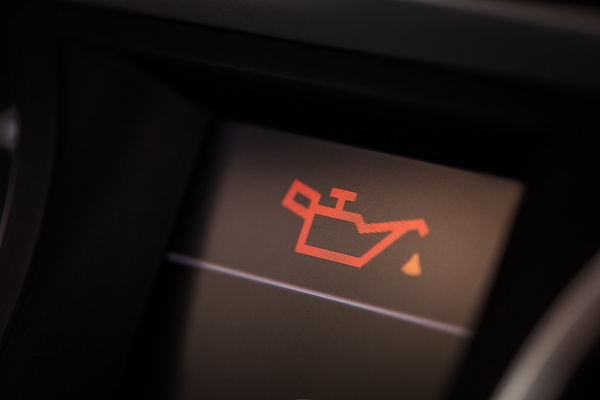
When your engine oil light comes on, it may be your engine is low on oil or there's not enough oil pressure in the system. The problem could be a loose or dirty oil filter or a bad seal. Learn how to know when you need to stop driving or get an oil change. Why Is the Engine Oil Light On? 1) Low oil level. The most common reason the engine oil light is on is the low oil level. When this happens, it will tell you to add more engine oil, so your car does not seize up and stop working. 2) Oil filter change. The second most common reason for the light coming on is that you need to change your car oil filter. It will help remove any impurities in the engine and reduce the risk of getting stranded in the middle of nowhere. 3) Faulty sensor: If this is true, you will have to take your vehicle to a mechanic or auto shop as soon as possible, so they can diagnose and replace any faulty parts that may be causing the issue. What To Do When the Engine Oil Light Comes On When the engine oil ... read more
Posted on 5/26/2022
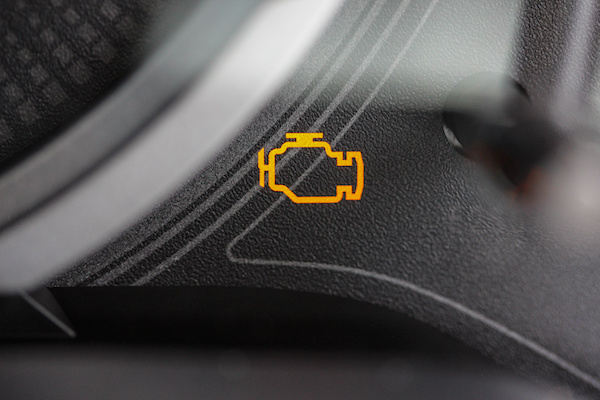
Car maintenance is one of those things that can be easy to put on the long finger when your vehicle is running smoothly and appears in good health. However, scheduling your auto tune-up can save you in the long run on significant damage and expensive repair. If all is not running as it should and you notice any of the following 4 signs from your car, you should book your car in immediately. The Engine Light Comes On It may be tempting to ignore those little annoying lights that appear out of nowhere on the dashboard but some are much more pressing than others. Make yourself familiar with your user's manual so that you can make the distinction when one appears. Ignoring an engine light could mean long-term damage to your engine should you keep driving. Unusual Noises or Vibrations This may seem obvious but it can be easy to get used to a new noise or drown it out with the radio. Only a trained mechanic will be able to distinguish the likely cause of some of the more unusual soun ... read more
Posted on 4/28/2022
.jpeg)
The transmission is a very important part of your vehicle. Have you ever heard "Well, the tranny's going"? This is a situation that you'll want to avoid by checking the transmission fluid. Checking your transmission fluid will help you look for any change in color or smell in the fluid, as it will tell you if your transmission is running smoothly. If you are not sure how to check your transmission fluid, check out the tips below so that it'll be an effortless task for you to do! How to Check the Transmission Fluid Checking the transmission fluid uses a similar dipstick as the oil one, too. The difference is, of course, the transmission dipstick measures the amount of fluid in your transmission. If there are signs that the fluid levels are low, it can show that there is a leak somewhere that you'll need to check. You'll need to make sure that you do not overfill the transmission as well, as foaming can cause additional issues. Turn your vehicle on for a ... read more
Posted on 3/29/2022
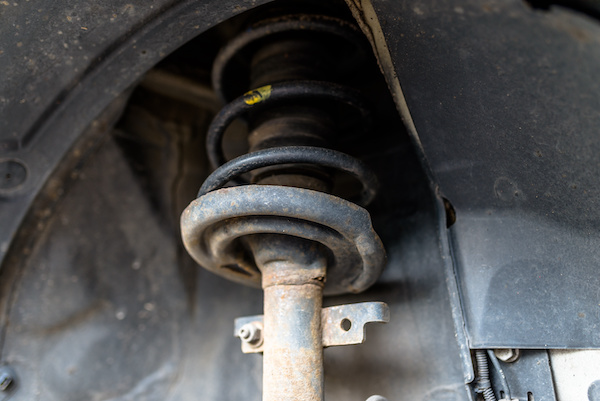
If the quality of your car ride feels off, you shouldn't ignore it. There could be a chance that your suspension has gone bad. However, you can put them to the test by doing the bounce test. How to Test Your Shocks with the Bounce Test The bounce test is a tool-free test that you can do at home to determine your shocks' condition. Little to no expertise is required, and it will only take 5 minutes. Follow the following steps: Park your vehicle on a flat surface Go to one corner of your car; you're going to be doing each corner individually. In one quick motion, push down on your car as hard as you can and release your body weight. Notice how your vehicle reacts. If it springs up to normal position right away, your shocks are doing fine. If it bounces once, your shocks are going to go bad soon. And if it jumps more than once, you need new shocks pronto. Repeat the test on your other car corners. You can visually inspect the suspension a ... read more
Posted on 2/28/2022

With the weather warming up and days getting longer, we're sure that some of you have some travel plans in mind. To ensure you're safe, relaxed, and comfortable on your road trip, you should account for these road trip tips: Get Plenty of Sleep Before Driving There's nothing worse than driving tired or groggy. Did you know that studies have shown driving with fatigue can be just as harmful as driving under the influence? Make sure you get plenty of night's rest before hitting the road. It is typically recommended that you start your journey on the road in the morning instead of the afternoon as you'll feel fresh and alert (if you got a good night of sleep, of course). Pack Some Snacks and Water Small, packable snacks are recommended for longer car rides, especially if you don't want to keep making stops to curb your hunger. Additionally, make sure you have an ample water supply so everyone can stay nice and hydrated. Plan for Rest Stops One of the most nec ... read more
Posted on 1/26/2022
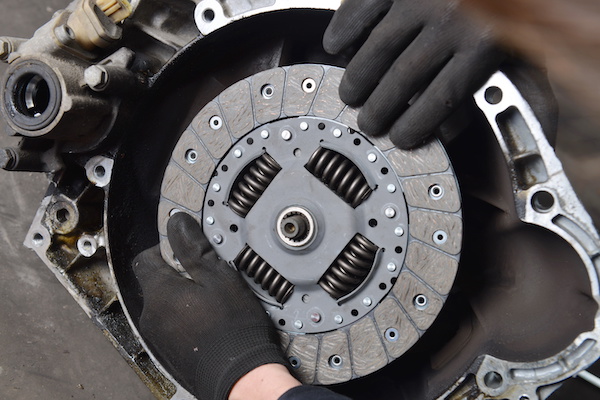
To put it into simple terms, the clutch is a manual transmission component that regulates when and how much power should be transferred to the vehicle's wheels. Furthermore, the clutch is engaged to hold your car in the right gear to allow you to accelerate when needed. For those who drive a stick, it's very important for you to know how to pick up on the signs of an aging clutch. Below are the top signs that indicate you need clutch repair: Clutch Slipping A slipping clutch almost always means you need your clutch replaced. This feeling is often described as a lag or stutter when the car speeds up. Your RPM may also jolt up further than necessary. If any of these happen, your car clutch needs to be looked at by an automotive professional. Trouble Shifting Gears Another sign of clutch failure is when the car can't shift gears properly. Whenever you try to change from one gear to another, it might require additional effort to put it in place. Chirping Noise If you hear ... read more
Posted on 12/21/2021
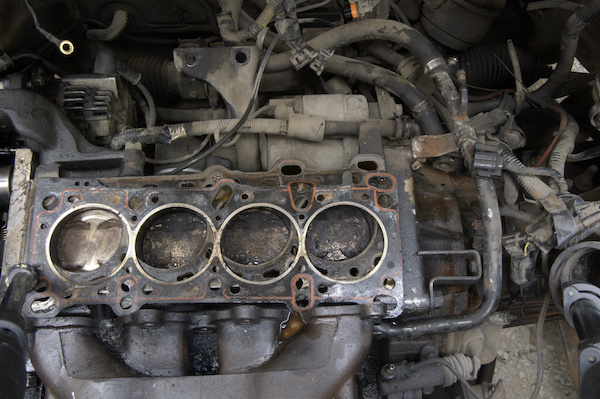
The ringed panel found between the cylinder head and the engine block is a head gasket. It prevents the engine fluids from leaking to the cylinder head. Besides that, it blocks oil, water, and lubricant channels from mixing. When the fluids mix, the engine can become defective. At times, the head gasket in your car may fail to perform effectively and blow. Below are some of the symptoms of a blown head gasket: The Start-up Process When starting up your car and you notice white fumes coming from the exhaust, it's a clear indicator of a blown head gasket. This occurs when a vehicle runs high-powered operations such as hauling a heavy load uphill. When you see white smoke, cool the cylinder head to help the engine operate smoothly. Don't wait until the issue becomes severe. Quick actions will help prevent spending on advanced repairs your car engine needs. Blue Exhaust Fumes A blown head gasket can also trigger blue exhaust fumes. The blue fumes indicate the engine is burnin ... read more